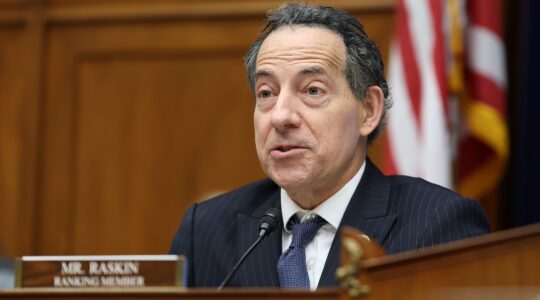Granger, Lowey: Palestinian statehood push could end U.S. funding
WASHINGTON (JTA) — The U.S. House of Representatives’ top Republican and Democratic appropriators for foreign assistance warned the Palestinian Authority that it is jeopardizing funding by pursuing statehood outside of talks.
The July 11 letter from Rep. Kay Granger (R-Texas), the chairwoman of the foreign operations subcommittee of the Appropriations Committee, and Rep. Nita Lowey (D-N.Y.), the subcommittee’s senior Democrat, to Palestinian Authority President Mahmoud Abbas noted that both the House and the Senate had in recent weeks overwhelmingly passed resolutions making such warnings.
"We write to reiterate our serious concerns about your intentions to pursue recognition of a Palestinian state at the United Nations," it said. "It has been the longstanding belief of the United States government that the path to a true and lasting peace between Palestinians and Israelis will come only as a result of direct negotiations. We write to reaffirm that belief and warn of the severe consequences of abandoning it."
It concluded: "Current and future aid will be jeopardized if you abandon direct negotiations and continue your current efforts." The United States currently delivers about $500 million in assistance to the Palestinians, although not all of it directly to the PA.
A number of proposed laws are now circulating in Congress that would ban assistance to the Palestinian Authority if it declares independence outside the framework of talks with Israel.
The Arab League this week asked the U.N. Security Council to consider recognizing an independent Palestinian state.
The Obama administration has said that pushing for statehood at the United Nations outside of the negotiationing process is not constructive, but has not said definitively whether it would veto such a resolution at the Security Council.

Help ensure Jewish news remains accessible to all. Your donation to the Jewish Telegraphic Agency powers the trusted journalism that has connected Jewish communities worldwide for more than 100 years. With your help, JTA can continue to deliver vital news and insights. Donate today.





